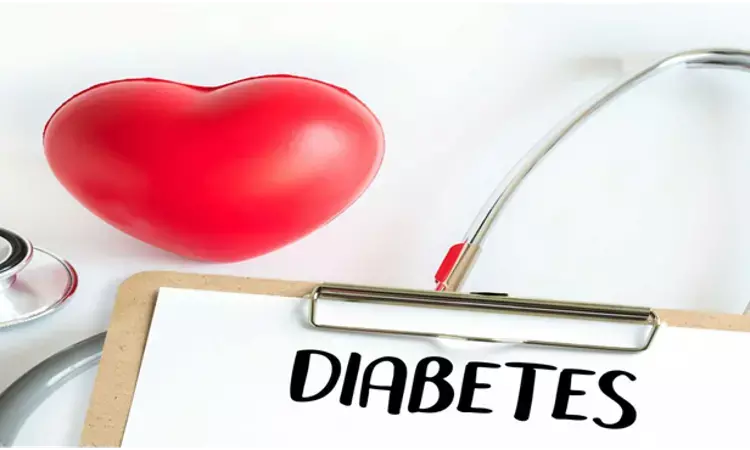- Home
- Medical news & Guidelines
- Anesthesiology
- Cardiology and CTVS
- Critical Care
- Dentistry
- Dermatology
- Diabetes and Endocrinology
- ENT
- Gastroenterology
- Medicine
- Nephrology
- Neurology
- Obstretics-Gynaecology
- Oncology
- Ophthalmology
- Orthopaedics
- Pediatrics-Neonatology
- Psychiatry
- Pulmonology
- Radiology
- Surgery
- Urology
- Laboratory Medicine
- Diet
- Nursing
- Paramedical
- Physiotherapy
- Health news
- Fact Check
- Bone Health Fact Check
- Brain Health Fact Check
- Cancer Related Fact Check
- Child Care Fact Check
- Dental and oral health fact check
- Diabetes and metabolic health fact check
- Diet and Nutrition Fact Check
- Eye and ENT Care Fact Check
- Fitness fact check
- Gut health fact check
- Heart health fact check
- Kidney health fact check
- Medical education fact check
- Men's health fact check
- Respiratory fact check
- Skin and hair care fact check
- Vaccine and Immunization fact check
- Women's health fact check
- AYUSH
- State News
- Andaman and Nicobar Islands
- Andhra Pradesh
- Arunachal Pradesh
- Assam
- Bihar
- Chandigarh
- Chattisgarh
- Dadra and Nagar Haveli
- Daman and Diu
- Delhi
- Goa
- Gujarat
- Haryana
- Himachal Pradesh
- Jammu & Kashmir
- Jharkhand
- Karnataka
- Kerala
- Ladakh
- Lakshadweep
- Madhya Pradesh
- Maharashtra
- Manipur
- Meghalaya
- Mizoram
- Nagaland
- Odisha
- Puducherry
- Punjab
- Rajasthan
- Sikkim
- Tamil Nadu
- Telangana
- Tripura
- Uttar Pradesh
- Uttrakhand
- West Bengal
- Medical Education
- Industry
GLP-1 receptor agonist therapy has CV benefits in type 2 DM, shows survival time analysis

USA: Glucagon-like peptide (GLP)-1 receptor agonists may delay the incidence of major adverse cardiovascular events (MACE)
Glucagon-like peptide (GLP)-1 receptor agonists may delay the incidence of major adverse cardiovascular events (MACE) in people with type 2 diabetes, write Salil Deo (Case Western Reserve University, Cleveland, Ohio, USA) and co-authors in Diabetes, Obesity and Metabolism.
The delay may by an average of 0.6 months over a 4-year period in people with type 2 diabetes, meta-analysis data suggest.
Globally, 6.28% of the world's population is affected by type 2 diabetes. Atherosclerosis is one of the main complications of diabetes and the leading cause of death in such patients, so every new drug trial involving treatment for diabetes mellitus is required to undergo a cardiovascular safety evaluation. Cardiovascular outcome trials (CVOTs) of GLP-1 receptor agonists are designed to ensure cardiovascular safety and have reported a significant reduction in adverse cardiovascular events.
Salil Deo and team conducted the meta-analysis study to evaluate the time-varying cardio-protective effect of a GLP-1 receptor agonist by pooling data from eight multinational cardiovascular outcome randomized controlled trials of GLP-1RAs for type 2 diabetes mellitus. The researcher calculated the differences between arms in RMST (ΔRMST) at 12, 24, 36 and 48 months. ΔRMST values were pooled using an inverse variance-weighted random-effects model; heterogeneity was tested with Cochran's Q statistic. The endpoints studied were: 3-point major adverse cardiovascular event (3-pt MACE), all-cause mortality, stroke, cardiovascular mortality, and myocardial infarction.
Result showed,
• Among GLP-1RA recipients, there was an average delay in three-point MACE of 0.03, 0.15, 0.37 and 0.63 months at 12, 24, 36 and 48 months, respectively.
• At 48 months, while cardiovascular mortality was comparable in both arms (pooled ΔRMST 0.163 [−0.112, 0.437]; P = 0.24), overall survival was higher (ΔRMST = 0.261 [0.08-0.43] months) and stroke was delayed (ΔRMST 0.22 [0.15-0.33]) in patients receiving GLP-1RAs.
The author and team concluded that GLP-1RAs have significant cardiovascular benefits and treatment with GLP-1RAs may delay the occurrence of MACE by an average of 0.6 months over 4 years, and potentially longer where all participants had existing ASCVD. Whether such gains increase linearly or perhaps accelerate with longer use of GLP-1RAs remains to be established.
Salil V. Deo, Shayan Marsia, David A. McAllister, Yakov Elgudin, Naveed Sattar, Jill P. Pell Diabetes, Obesity and Metabolism
First published: 01 May 2022 https://doi.org/10.1111/dom.14738
BDS
Dr. Hiral patel (BDS) has completed BDS from Gujarat University, Baroda. She has worked in private dental steup for 8years and is currently a consulting general dentist in mumbai. She has recently completed her advanced PG diploma in clinical research and pharmacovigilance. She is passionate about writing and loves to read, analyses and write informative medical content for readers. She can be contacted at editorial@medicaldialogues.in.
Dr Kamal Kant Kohli-MBBS, DTCD- a chest specialist with more than 30 years of practice and a flair for writing clinical articles, Dr Kamal Kant Kohli joined Medical Dialogues as a Chief Editor of Medical News. Besides writing articles, as an editor, he proofreads and verifies all the medical content published on Medical Dialogues including those coming from journals, studies,medical conferences,guidelines etc. Email: drkohli@medicaldialogues.in. Contact no. 011-43720751


